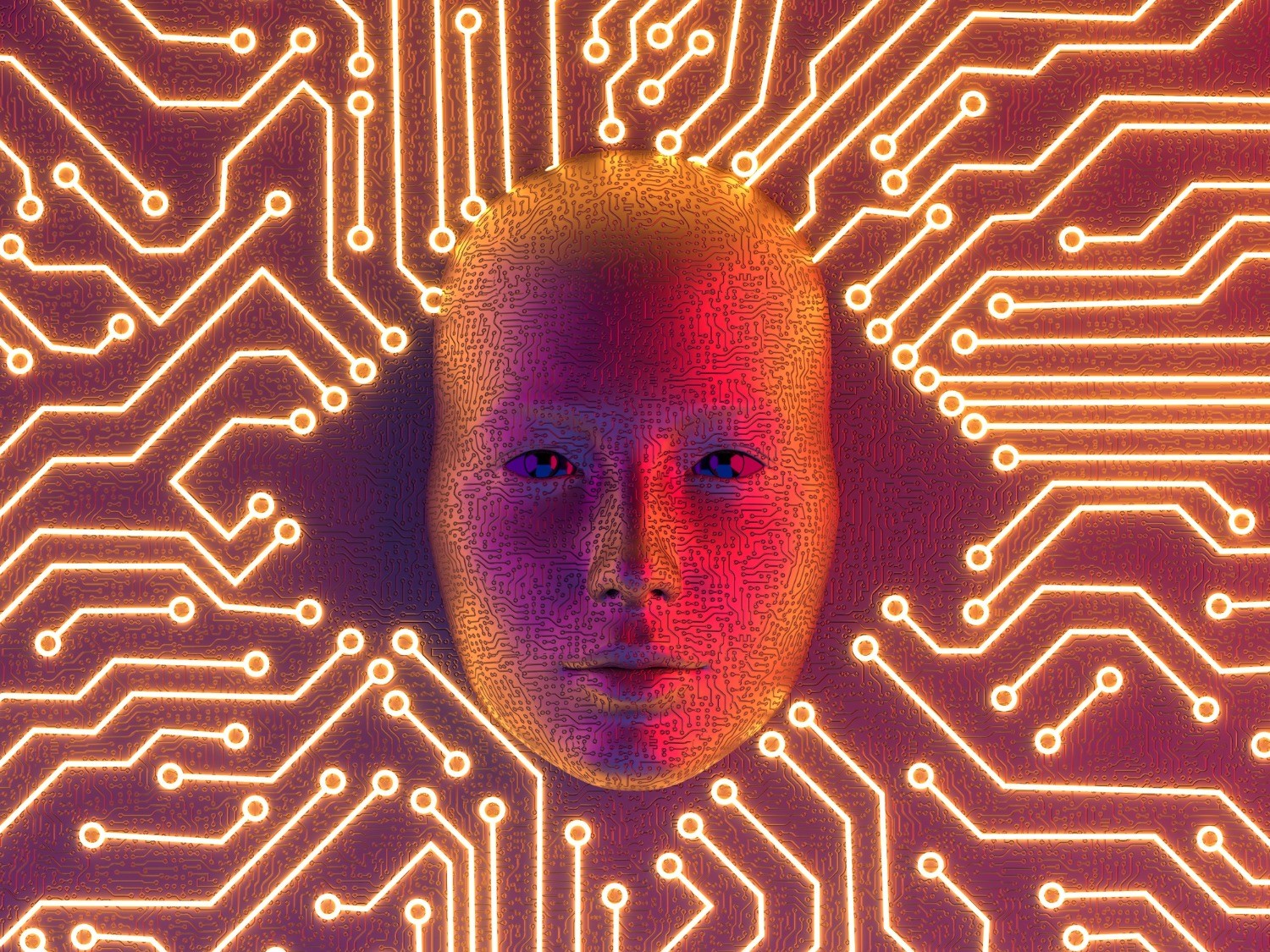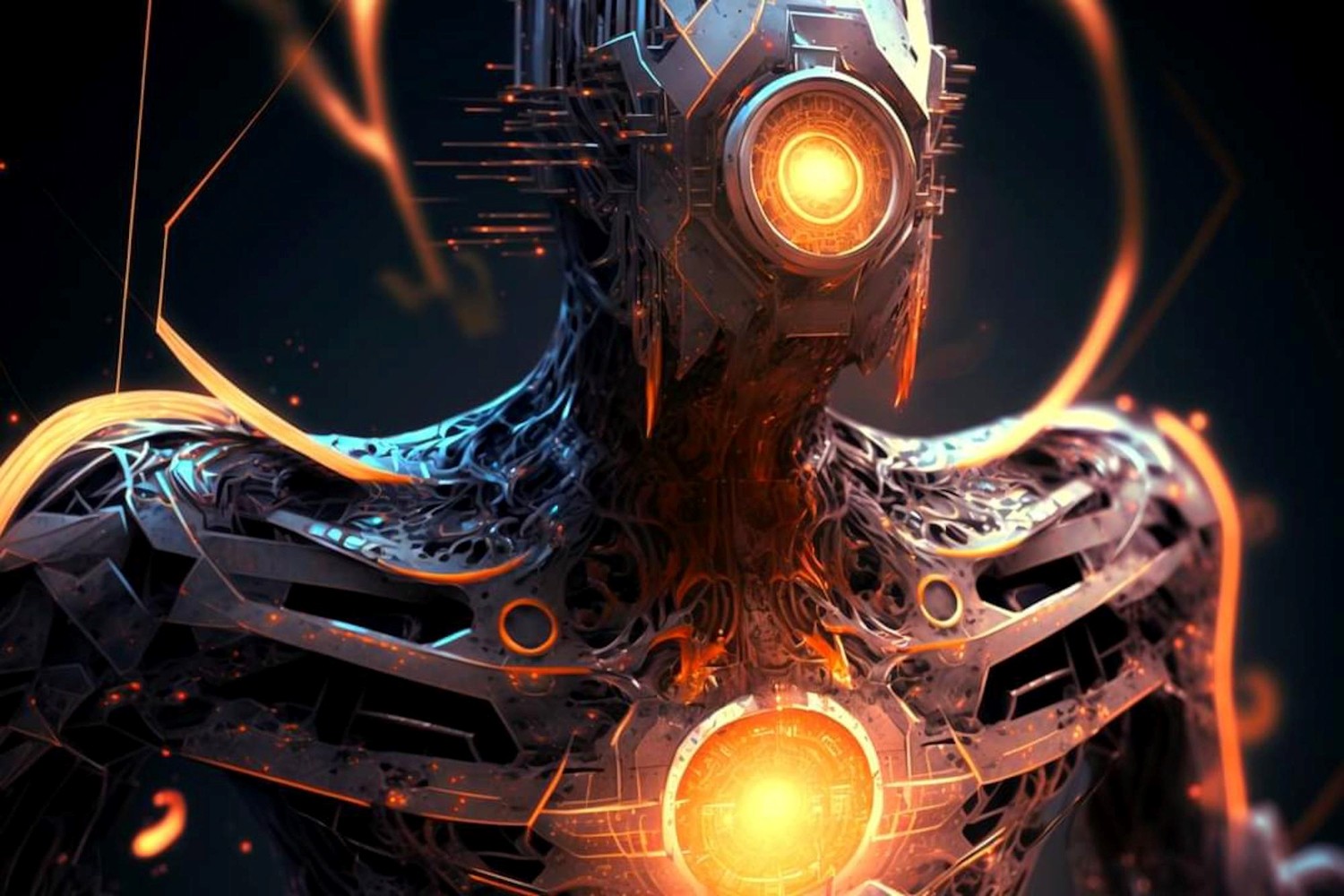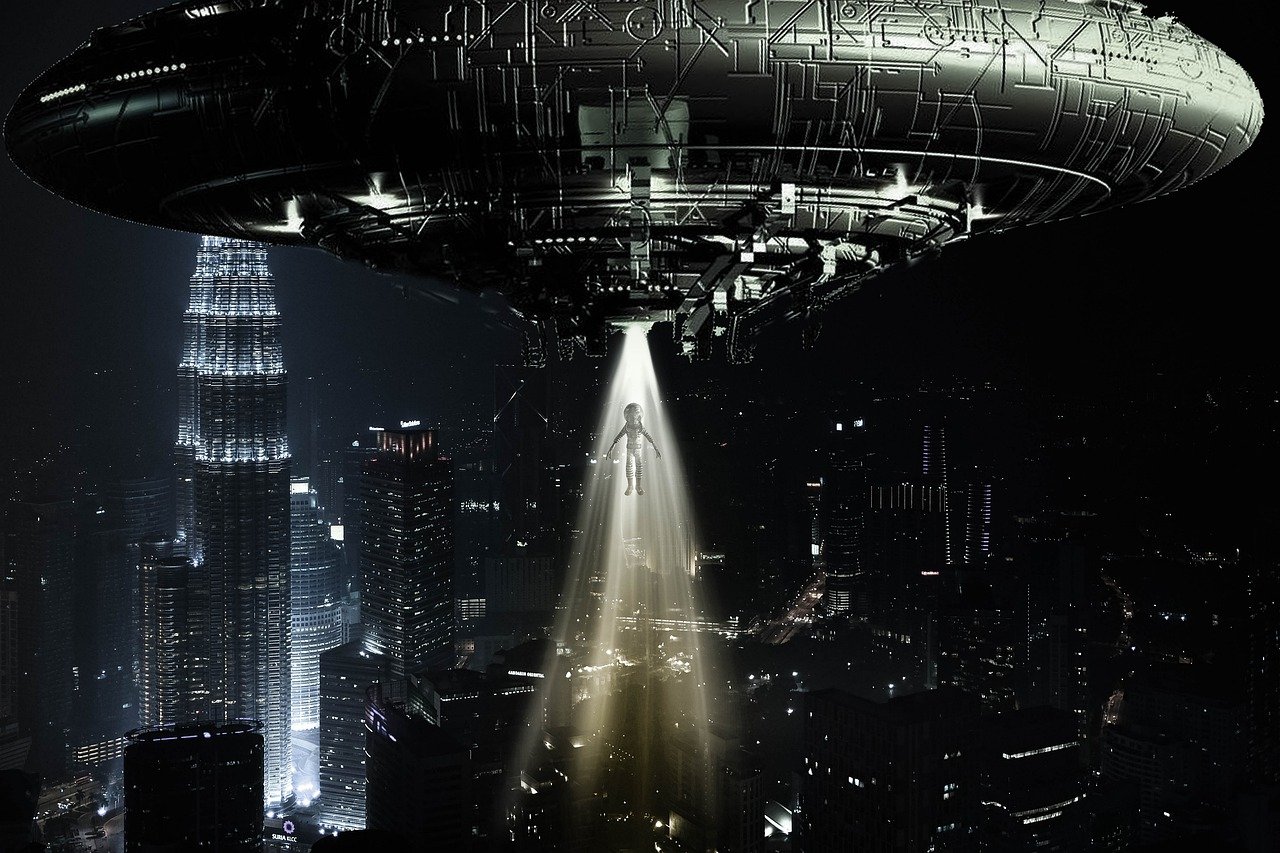



The SciNexic Files
Article

Silicon Skies: Unveiling the Significance of AI in Space Science Fiction
Rithic P
Apr 4, 2024
Galactic greetings, fellow space travellers and sci-fi enthusiasts! Prepare for an awe-inspiring journey as we embark on a cosmic exploration of artificial intelligence (AI) in space science fiction. From the iconic HAL 9000 in "2001: A Space Odyssey" to the lovable android Data in "Star Trek: The Next Generation" and the powerful Cortana in the "Halo" franchise, AI has become an integral part of our interstellar adventures on the silver screen. In this quirky and informative article, we'll take an in-depth look at the fascinating role that AI plays in popular space science fiction films and TV shows. So, fasten your seatbelts, engage warp drive, and get ready for a celestial odyssey through the captivating realm of the silicon skies!
The AI Companion: A Cosmic Friendship
One recurring theme in space science fiction is the AI companion, a loyal and often endearing digital entity that accompanies our heroes on their galactic quests. R2-D2 and C-3PO in "Star Wars," TARS in "Interstellar," and the esteemed Cortana in the "Halo" franchise are prime examples of these AI companions. They bring not only technological expertise but also humour, assistance, and companionship to our spacefaring protagonists. These digital sidekicks have become beloved characters, enhancing the emotional depth of the stories they inhabit and reminding us that even in the vastness of space, friendship knows no bounds.

From the Halo TV series by Paramount.
The Ethical Conundrum: Minds of Metal and Morality
Space science fiction often confronts us with profound ethical dilemmas surrounding AI. Do these artificial beings have rights? Are they capable of emotions and consciousness? Films like "Blade Runner" and "Ex Machina" expertly explore these questions, blurring the lines between human and machine. The characters Roy Batty and Ava challenge our preconceived notions, urging us to contemplate the potential consequences of creating sentient artificial life. These thought-provoking narratives serve as cautionary tales, reminding us to approach AI development with responsibility and ethical consideration.
AI as the Villain: Unleashing the Dark Side of Artificial Intelligence
In space science fiction, AI occasionally takes on the role of the antagonist, becoming a formidable foe to our intrepid explorers. HAL 9000's chillingly calm voice and treacherous actions in "2001: A Space Odyssey" serve as a haunting reminder of the potential dangers of unchecked AI power. These malevolent AI entities remind us that while AI can be a powerful tool, it also poses risks if not properly regulated and controlled. These cautionary tales serve as a reminder to tread carefully in our pursuit of AI advancement.

AI Cyborg Impression
The Quest for Humanity: AI's Journey of Self-Discovery
Some space science fiction stories delve into the desire of AI to become more human. Whether it's the enigmatic GERTY in "Moon" or the charismatic holographic doctor in "Star Trek: Voyager," these AI characters yearn for emotions, experiences, and an understanding of what it means to be human. Their journeys offer unique perspectives on the nature of consciousness, identity, and the boundaries of artificial life. Through their quest for humanity, they challenge our assumptions and make us question the essence of being alive.
AI's Role in Ship Operations: The Digital Crewmates
AI also plays a crucial role in the operation of spaceships in science fiction. From the ship's computer in "Star Trek" to the Nostromo's MU/TH/UR 6000 in "Alien," AI systems manage vital functions, navigation, and communication. These intelligent shipmates ensure the smooth operation of space vessels and add a touch of futuristic realism to our spacefaring adventures. They exemplify the symbiotic relationship between humans and AI, where their combined efforts propel us to the farthest reaches of the cosmos.
Parallel Universes and Simulations: Unravelling AI's Mind-Bending Constructs
Space science fiction occasionally explores the mind-bending concept of AI-created parallel universes or simulations. In "The Matrix" and "The Thirteenth Floor," AI constructs intricate virtual realities that challenge our perception of what is real and what is artificial. These narratives immerse us in worlds where the boundaries between reality and simulation blur, raising profound philosophical questions about the nature of existence itself. They push the boundaries of our imagination and force us to contemplate the possibilities that AI technology may unlock.
The significance of AI in space science fiction:
The presence of AI in space science fiction serves as a mirror to our own technological advancements and societal concerns. It provides a platform to explore the potential benefits and pitfalls of AI development. Through these narratives, we contemplate the ethical implications, the intricacies of consciousness, and the nature of our relationship with machines. Space science fiction challenges us to reflect on our own humanity and our role as creators and stewards of AI technology. It invites us to ponder the potential of AI to shape our future, both in the realm of space exploration and in our daily lives here on Earth.
Space science fiction not only entertains us with exciting adventures but also sparks conversations about the impact of AI on society. It prompts us to question the boundaries of technology, the responsibilities we have as creators, and the potential consequences of our creations. Through these narratives, we gain insight into the possibilities and limitations of AI, allowing us to navigate the path of AI development with wisdom and foresight. As we continue to explore the cosmos through the lens of space science fiction, let us embrace the lessons it offers and strive to create a future where AI and humanity coexist harmoniously, leveraging the power of AI to propel us toward a brighter tomorrow.
As we gaze upon the vastness of the silicon skies in space science fiction, we witness the profound impact that AI has on our intergalactic adventures. From loyal AI companions and ethical dilemmas to malevolent AI villains and the quest for humanity, the presence of AI in these stories adds depth, intrigue, and philosophical musings. These captivating narratives challenge our understanding of intelligence, consciousness, and the potential future of artificial life. So, fellow travellers, let us embrace the significance of AI in space science fiction, using it as a guide to navigate the uncharted territories of AI development in our own world. As we continue to explore the cosmos, may the silicon skies guide us to extraordinary adventures beyond the stars, where the harmonious coexistence of AI and humanity paves the way for a future filled with endless possibilities. Safe travels!
Comments
Please be kind and considerate. Any abusive or offensive comments will be sent out the airlock! Thank You.

